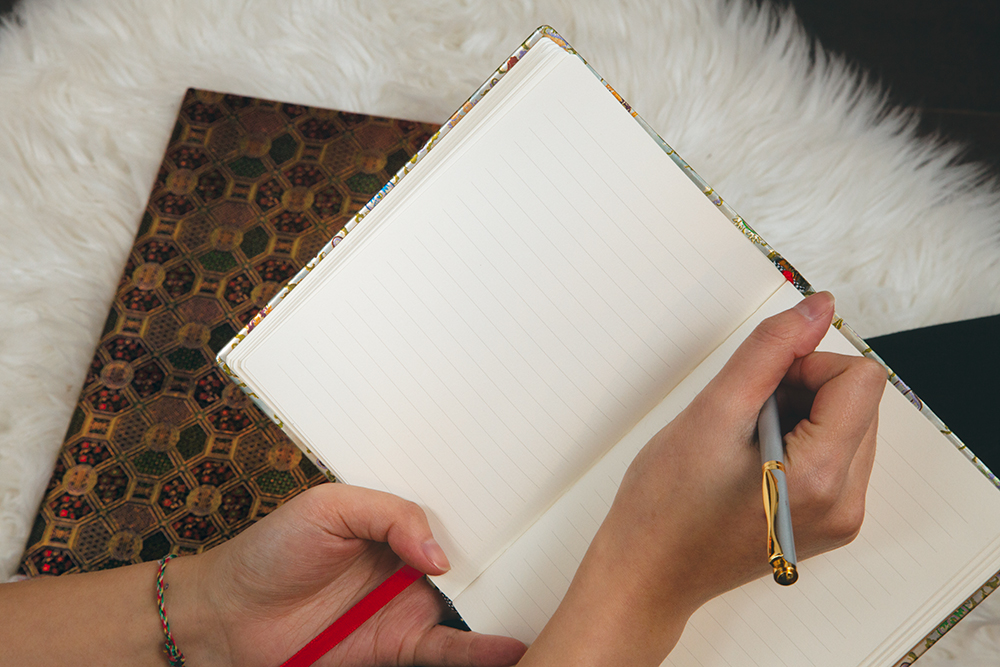Journalling is one of those things that you know feels good, but you don’t always understand why. And while we’re all for leaving some sense of mystery in our lives, knowing the actual therapeutic benefits of keeping a journal can either justify your time spent writing, or encourage you to pick up a healthy new habit.
Here are four positive effects that journalling can have on your health.
1) Move past negative feelings
Bottling up unhappy feelings can create an overall sense of anxiety and despair that permeates your entire life. Journalling is an easy and immediate way to let go of that burden and come to terms with whatever is weighing on you. As author Diane Sherry Case (Write for Recovery) says, journalling is “a process of uncovering, discovering and – ultimately – discarding” these negative thoughts. She recommends an exercise called “Feel It and Heal It” in order to move on. Check out the step-by-step process she shared in an interview with the website Hello Giggles.
2) Keep your mind active
Writing in a journal, whether guided or without a clear plan, ignites your creative thinking skills. As we become more dependent on tech to do a lot of our thinking for us, from computers and television and even to calculators, we become passive in our thought process. Making journalling a part of your life can keep your mental acuity in focus.
3) Be heart-healthy
The data is there to back up the claim that journalling is not only good mentally, but physically, too. Work by Dr. James Pennebaker and researchers at the University of Arizona shows that keeping a journal after a traumatic event, such as a divorce, can result in lower heart rate and higher heart rate variability – both indicators of better health. Expressive writing can even help you heal from a physically traumatic event! Writing out your feelings eases anxiety, which can have very real benefits when it comes to how your body reacts to stress.
4) Sleep better
Writing in a journal before bed, especially a gratitude journal, has been shown to help you sleep better. It’s a great way to unwind and process the emotions of a day, and sets a clear delineation between waking and sleeping time.
More Resources
- The Therapeutic Benefits of Keeping a Journal
- Journal Your Cares Away
- 4 Ways Keeping a Journal Will Improve Your Life
- 6 Health Benefits of Journalling
- 6 Ways Keeping a Workout Journal Can Help You Stick to Your Goals
About Paperblanks: 25 years ago, we created Paperblanks to help keep book heritage alive and vital in our modern age, and to offer an inspiring space for people to express themselves. Thanks for joining us on this journey! For more about Paperblanks, go to our website at paperblanks.com.






